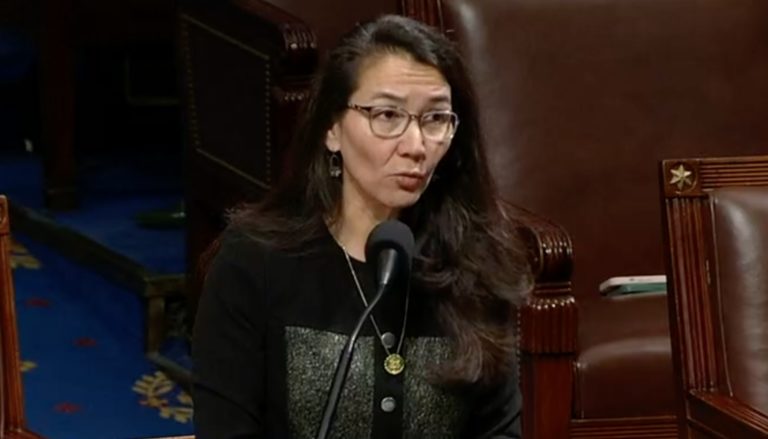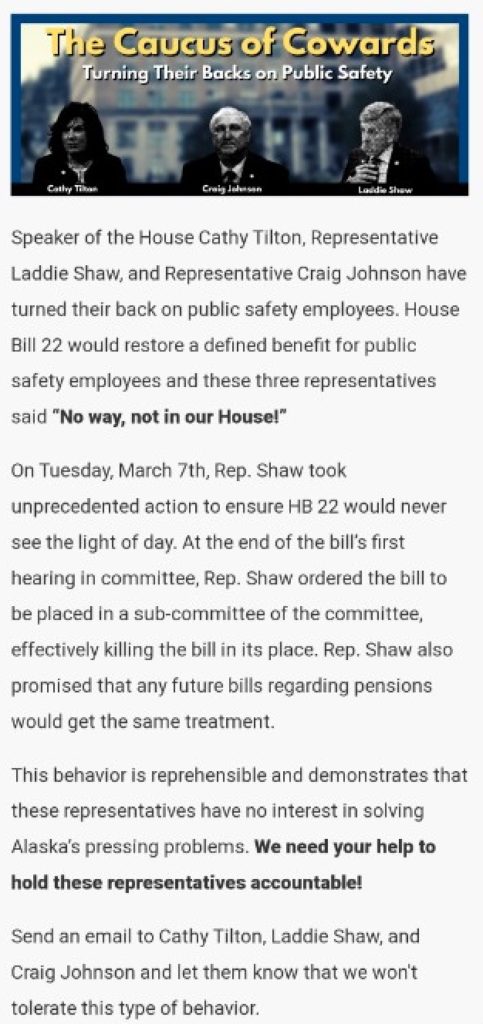Rep. Mary Peltola last week voted against a resolution that would bar federal employees from using their official power or influence to promote censorship or to advocate for a third party, such as Twitter or Facebook, to censor Americans or suppress their points of view. Federal employees found to violate the prohibition would be subject to civil penalties. Peltola was on the wrong side of the bill, which passed without Democrat support
The Protecting Speech from Government Interference Act was sponsored by Rep. James Comer of Kentucky. It was supported by the Republican majority in the House, and opposed by Democrats. Peltola and the Democrats also voted on a motion to recommit the bill back to the committee it came from, the House Oversight Committee, but the motion was opposed by the majority.
“Today the House of Representatives took action to protect our constitutional right to free speech from government censorship. The Biden Administration has eroded Americans’ First Amendment rights by bullying social media companies to censor certain views and news on their platforms. Biden Administration officials are quick to label inconvenient facts as disinformation and then pressure social media companies to suppress content on their platforms. To protect the First Amendment, the Protect Speech from Government Interference Act stops federal employees from pressuring social media companies to silence Americans expressing views online. The Senate must take up this legislation to get this bill to the finish line,” Comer said.
However, if the Democrat-controlled Senate does pass the bill, the president must sign the bill in order for it to become law.
The Act expands on the Hatch Act, the law banning federal employees from engaging in political activities in their official capacity. The bill expressly prohibits federal employees from trying to censor free speech.
Rather than defending the Americans so they do not have their First Amendment rights interfered with by the government, Peltola gave a three-minute floor speech on the need to expand Social Security.
The bill prohibits federal workers from using official positions, resources, or powers to coerce a private platform into removing, suppressing, restricting, censoring, or adding disclaimers or disparaging alerts to speech. It provides an exception for legitimate law enforcement activities involving specific crimes.
Heritage Action said it is a good first step: “From the censorship of the NYPost and the Hunter Biden laptop story days before an election to the quelling of COVID-19 evidence contrary to the elite’s established viewpoint, social media firms have been censoring American’s viewpoints and their right to associate – apparently at the direction of government agents. Heritage Action commends House Republicans for advancing H.R. 140, the Protecting Speech from Government Interference Act, and looks forward to further action against Big Tech’s corrosive impact on society.”
Chad Wolf of America First Policy Institute said, “Our First Amendment rights are at stake. Time and time again, we’ve seen the current Administration betray the trust of the American people by pressuring, encouraging, and colluding with Big Tech giants to censor ideology they disagree with. This simply cannot go unchallenged, and we applaud Chairman Comer and the House Oversight Committee for proactively fighting this blatant violation of our most cherished and fundamental right.”
The American Consumer Institute also applauded the passage of HB 140:“The Protecting Speech from Government Interference Act is a step in the right direction when it comes to consumers’ freedom of speech on the platforms they use to express themselves. By preventing the government from unduly restraining protected speech, this bill would ensure that consumers’ taxpayer dollars don’t go toward the suppression of speech. Unlike other legislation that would regulate the moderation decisions of private entities, H.R. 140 focuses on the key issue of keeping the government from tipping the scale in public discourse. It’s encouraging to see offices like Chairman Comer’s working to defend a free and open speech environment.”
Details of the bill can be read at this link.










